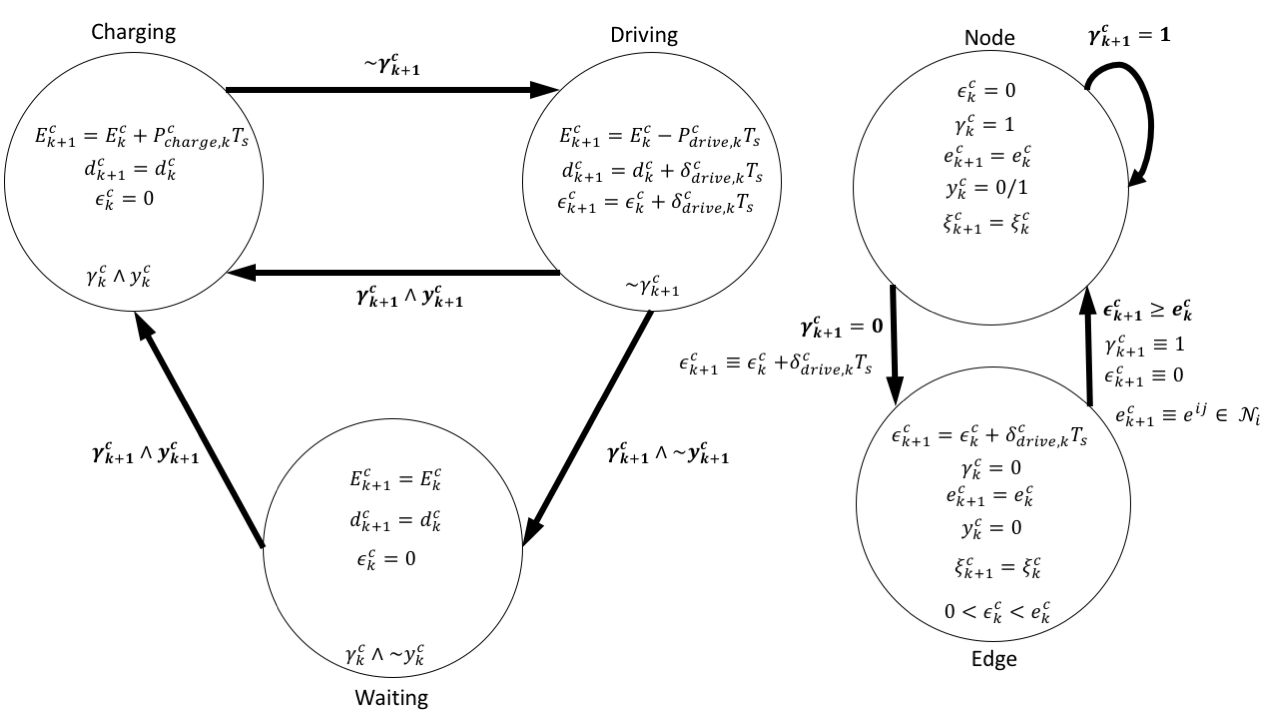Hybrid Systems Theoretic EV Scheduling
For the project for Hybrid Systems---Computation and Control (EECS 291E/ME 290Q), taught by Claire Tomlin, Vineet Nair and I chose a hybrid systems theoretic approach that drew directly on the concepts learned in the earlier part of the course. This theory ended up being very similar in essence, and ultimately complementary, to the mixed-logic dynamical systems described in Predictive Control for linear and hybrid systems by Borrelli, Bemporad, and Morari.
See the paper on ArXiv.org
Abstract:
In this paper, we attempt to optimally schedule the charging of long-range battery electric vehicles (BEVs) along highway networks, in order to minimize aggregate costs to the overall system consisting of utilities or electricity providers, station operators and other infrastructure, as well as EV users. Thus, we approach the problem from the perspective of both customers (EV car owners), as well as charging station operators and utilities using a hybrid systems based formulation.
Contributions:
In this paper, we propose looking at the scheduling problem for EV charging from the perspective of minimizing aggregate costs to the system as a whole. This addresses an important null space in the literature since much of the previous work in this area has focused on optimizing the allocation of charging power with respect to only one of the players i.e. utilities, charging station operators, or customers.
A lot of the past research has also focused on determining optimal locations for charging stations in a given area. However, in this paper, we take the station locations (i.e. the nodes) as a fixed parameter for a particular city or urban area’s highway network. Instead, we aim to design a central controller or algorithm that determines the optimal trajectory that an EV can take given their starting position and desired destination, in a manner that maximizes benefits to all stakeholders involved.
Furthermore, a great deal of effort has gone into minimizing losses to utilities and the grid - and utilizing EVs to provide services like load flattening, voltage and frequency regulation. However, we place more emphasis on the opportunity costs paid by customers as well, in terms of both time spent and physical degradation of their car batteries. Following the prescribed route will also help alleviate range anxiety among users, and potentially contribute towards increased EV penetration.
Additionally, this work defines a hybrid systems theoretic model and uses finite state machines to describe the dynamics of electric vehicles on a highway network under two different frameworks. The model is first described under a framework that is more easily converted into code. The second description allows for more thorough analysis of the model’s properties.

